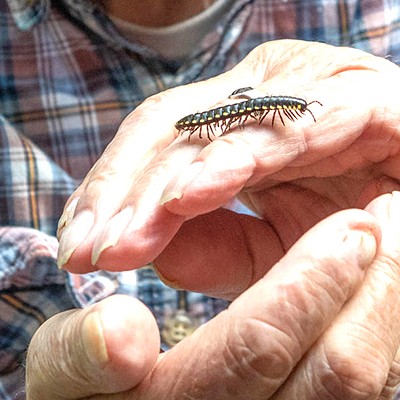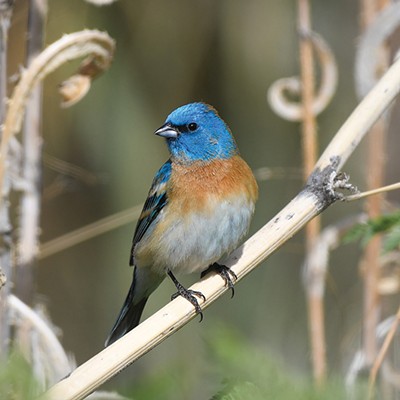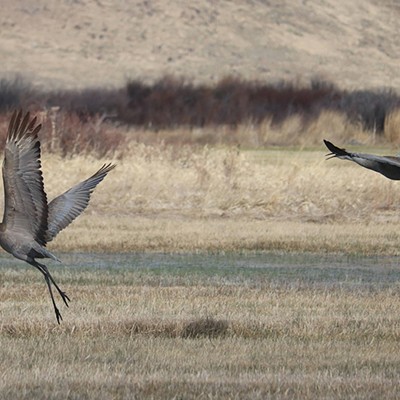The hummingbirds that spend summer with us are returning, and with them returns the dilemma over whether or not red food coloring is harmful to them. The bottom line of this argument can be summed up best by stating: "It doesn't do them any good, so why use it and take the chance that it will."
I have spent years trying to pin down the rumor that FDA Red #40 is harmful to hummingbirds. To my knowledge, no one has done any in-depth research into the use of red dyes in hummingbird food.When I was the manager of Ramsey Canyon Preserve (RCP), aka "The Hummingbird Capitol of the World," located in southeast Arizona, the red dye business was going full-bore. One side said use it, saying that the hummingbirds can find the feeder quicker, and it doesn't hurt them, while other quoted "studies" done by the San Diego Zoo, stated it was harmful.
Right from the get go, if you are using a feeder with even a tiny bit of red on it, the hummers will find it. That I can prove from a personal experiment I conducted at RCP. I was curious about how well hummers could see red, so I cut out a bright-red (tape) disc the size of a dime and stuck it to my forehead, right between my eyes. Then I took a hike up into the underbrush on a side-hill above the preserve and sat down. Within 30 seconds, a large male blue-throated hummingbird came to investigate the red spot, and I have to tell you - it was startling to suddenly have that big-and-beautiful hummer hovering right between my eyes!
From that and similar experiments, I can state unequivocally that it is not necessary to put anything in the feeder except a clear sugar and water mixture.
And while we are on the subject of the hummingbird mixture, use only clear, granulated table sugar at the ratio of one part sugar to four parts (boiled) water. Mix the sugar and water while the water is hot - not boiling hot - allow it to cool and fill the feeder(s). Do not use brown sugar, honey, powdered sugar, maple syrup, Splenda, strawberry-flavored water, Equal, Sweet'N'Low, Karo, or any other sugar substitute.
The only gain that hummers obtain from sugar water is a quick blast of energy to give them the extra speed to capture insects on the wing, and more stamina to hover longer in flowers - and to do battle with other hummers. The latter is what hummingbirds love to do, especially the males.
Hummingbirds are nothing more than attractive, midget-sized flycatchers that tank up on sugar water. When a hummer has its head buried in a flower there are three things going on. They are: 1) slurping up tiny arthropods (insects, spiders and the like); 2) helping to pollinate the plants; 3) slurping up nectar - and incidentally, the nectar from most flowers is clear.
The business of hummers battling other hummers is territorial and our common Rufous hummers are really good at it. If you watch long enough, you'll notice there is very little physical contact, often just the chase. Yes, once in a while, "tempers" flare (please forgive me for giving a human trait to the tiny hummingbird), they will slap wings. That said, I have seen larger hummingbirds actually kill smaller ones in territorial battles over feeders.
So, here's the deal on feeders. Hang it in a clearing so battles can be done out in the open. (It's OK to have more than one feeder.) And, choose a feeder with a perch so birds can rest.
Clean the feeder with soap and water every two weeks. Look for mold and be sure you scrubbed it out. If it's really hot weather, clean every week. And remember to rinse thoroughly.
Keep field notes on your calendar so that next year when the hummers return, you will have something to share with our neighbors about dates and numbers. If you notice something out of whack, contact me, but be kind above all to our feathered friends by taking down the feeder as soon as it gets cold.


![(COMEDY) The Complete Works of William Shakespeare (abridged) [revised] (again)](https://media1.bendsource.com/bend/imager/comedy-the-complete-works-of-william-shakespeare-abridged-revised-again/u/16x9-m/21027862/hy9a1160a2.jpg?cb=1713893365)



















